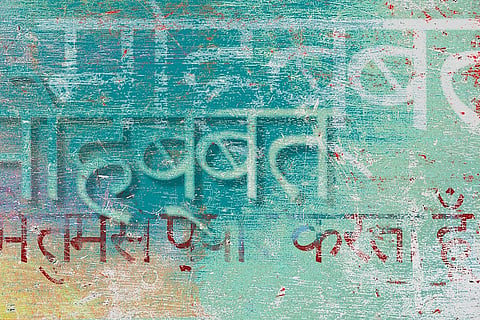

A Public Interest Litigation has been filed in the Supreme Court by BJP spokesperson and lawyer Ashwini Kumar Upadhyay seeking directions to make Hindi a compulsory subject for all the students of classes I-VIII.
According to the petitioner, the public servants and members of the higher judiciary, who have completed their education in regional languages and are not able to read, write and speak Hindi, find it difficult when transferred to another State having another regional language. Difficulties faced by them while communicating with the common man speaking in another regional language, can be well appreciated. This problem can be easily resolved by making the study of Hindi compulsory for all the students of I-VIII standard in the spirit of Article 21A read with Article 343, 344, 348, 351 and Preamble of the Constitution of India.
“Study of Hindi should be compulsory for all the students of I-VIII standard, so that all the Indian citizens can easily communicate with each other. It will promote fraternity, unity and national integration, the great golden goals as set out in the Preamble of the Constitution”.
The petitioner submitted that at the time of framing and adoption of the Constitution, it was envisaged that English would continue to be used for executive, judicial and legal purposes for an initial period of 15 years i.e. till 1965 only.
“Hindi is the fifth most widely spoken language in the world. India is known as ‘Hindustan’, which implies that a majority of the Indians are Hindi speaking. Hindi was considered as the official language even before Independence. It was adopted as the official language by the constituent assembly on 14.09.1949 and every year, this day is celebrated as Hindi day. Hindi is referred to as the nation’s collective voice because of its wide use by the great Indian freedom fighters”, states the petition.
He also submitted that because of weakness on the part of our leadership, they couldn’t ensure in making Hindi the national language of India. They could not do it perhaps because of the regional political compulsions. Despite being spoken and understood by a large section of India’s population, Hindi has not been able to get the well-deserved status of “National Language of India”.
According to the petitioner, compulsory study of Hindi for all the children aged 6-14 years is not only necessary to secure social, economic equality but also essential to promote fraternity, assuring dignity of the individual and unity and integrity of the nation.
“Most of the developed and developing countries have their National Language. Without declaring Hindi as the National language of India, and without making it a compulsory subject for all the students of I-VIII standard throughout the Country, equality of status and of opportunity can’t be secured and fraternity assuring dignity of the individual and unity and integrity of the nation cannot be promoted, thus it is the duty of the Government to take apt steps on top priority”, he said.
The Petitioner has also sought the following directions from the Court: -frame a National Policy to promote and propagate the Hindi language in the spirit of Articles 343, 344, 348, 351 and Preamble of the Constitution of India; -take appropriate steps to declare Hindi as the National Language of India in the spirit of Articles 343, 344, 348, 351 and Preamble of the Constitution of India.
You can read the petition here.
This article has been reproduced with permission from LiveLaw.